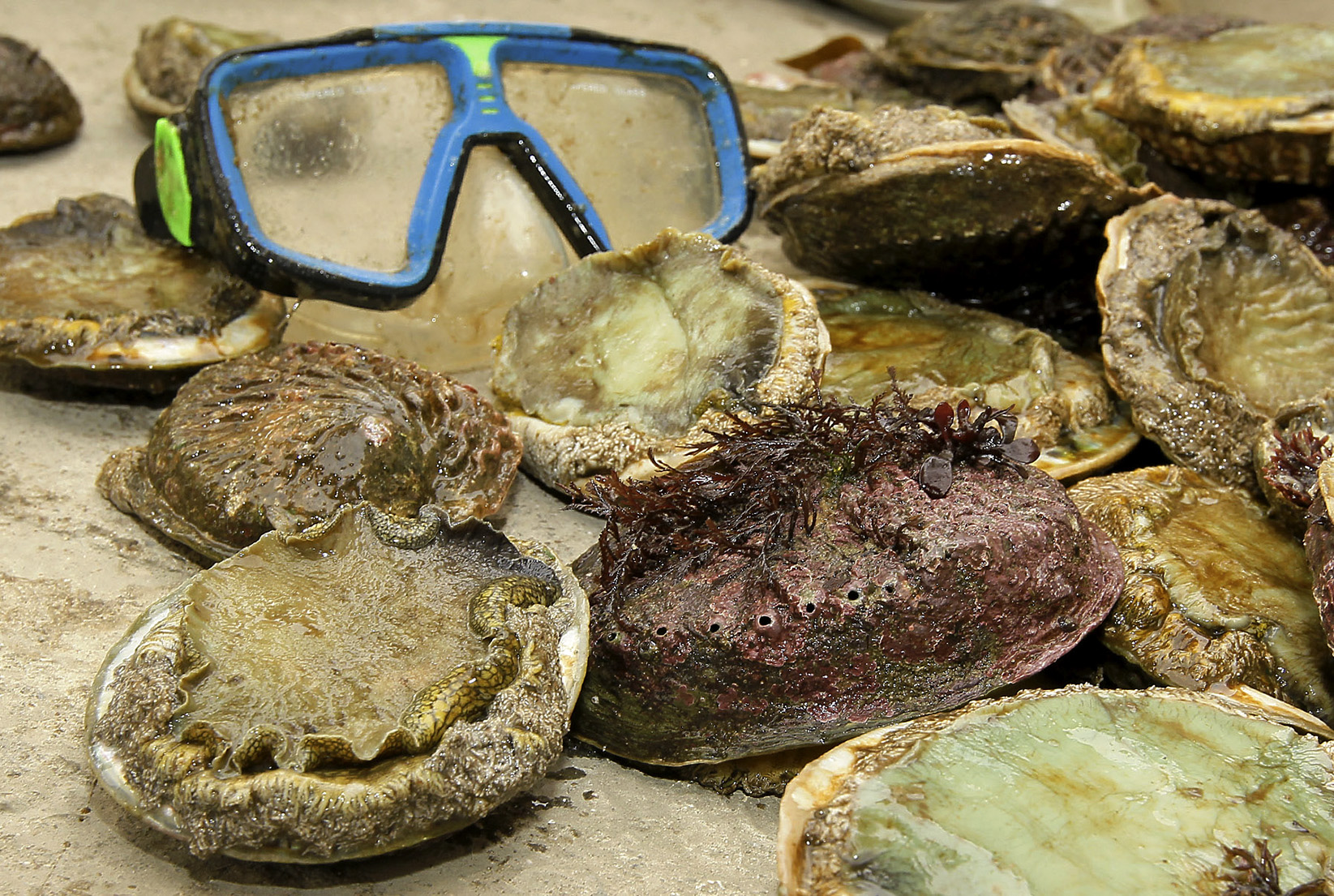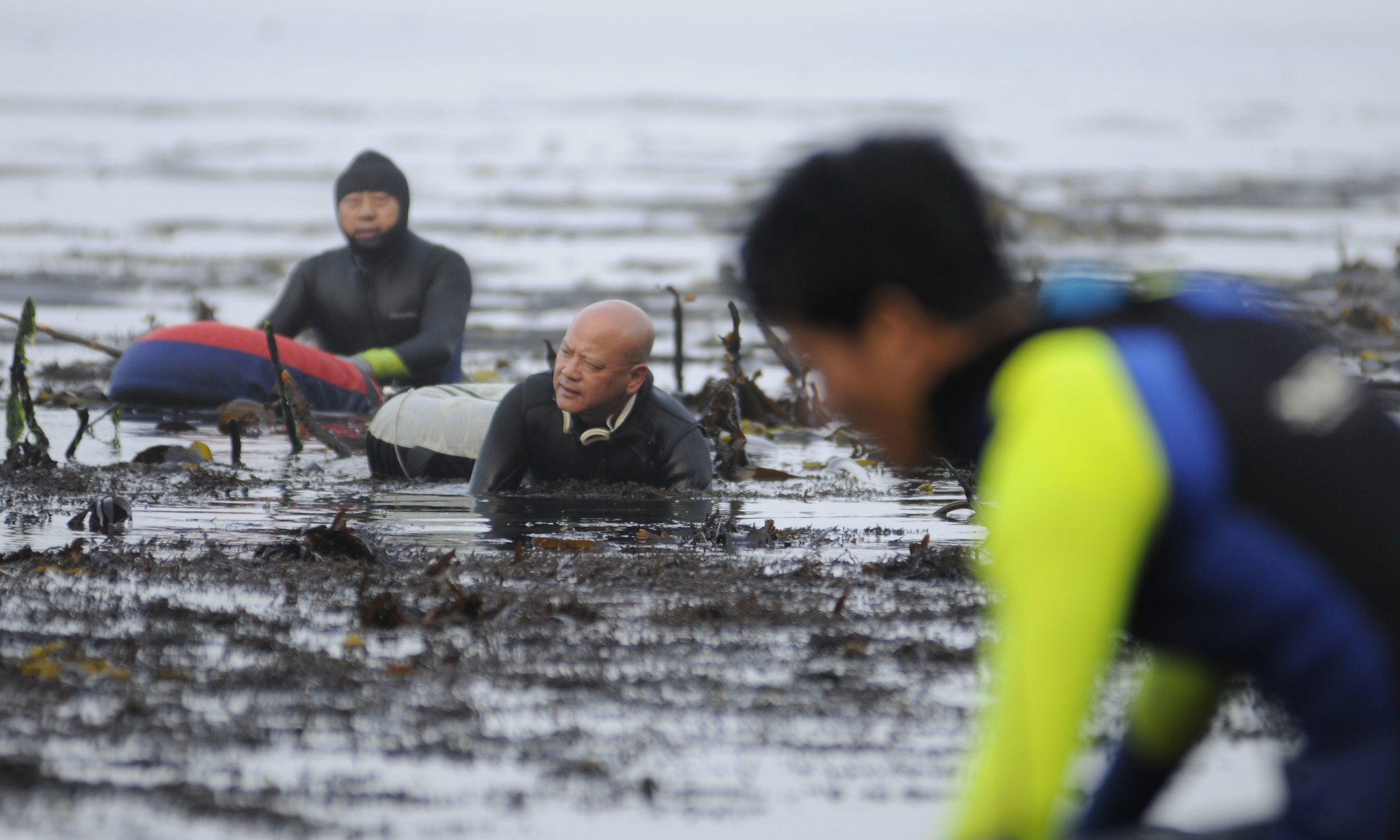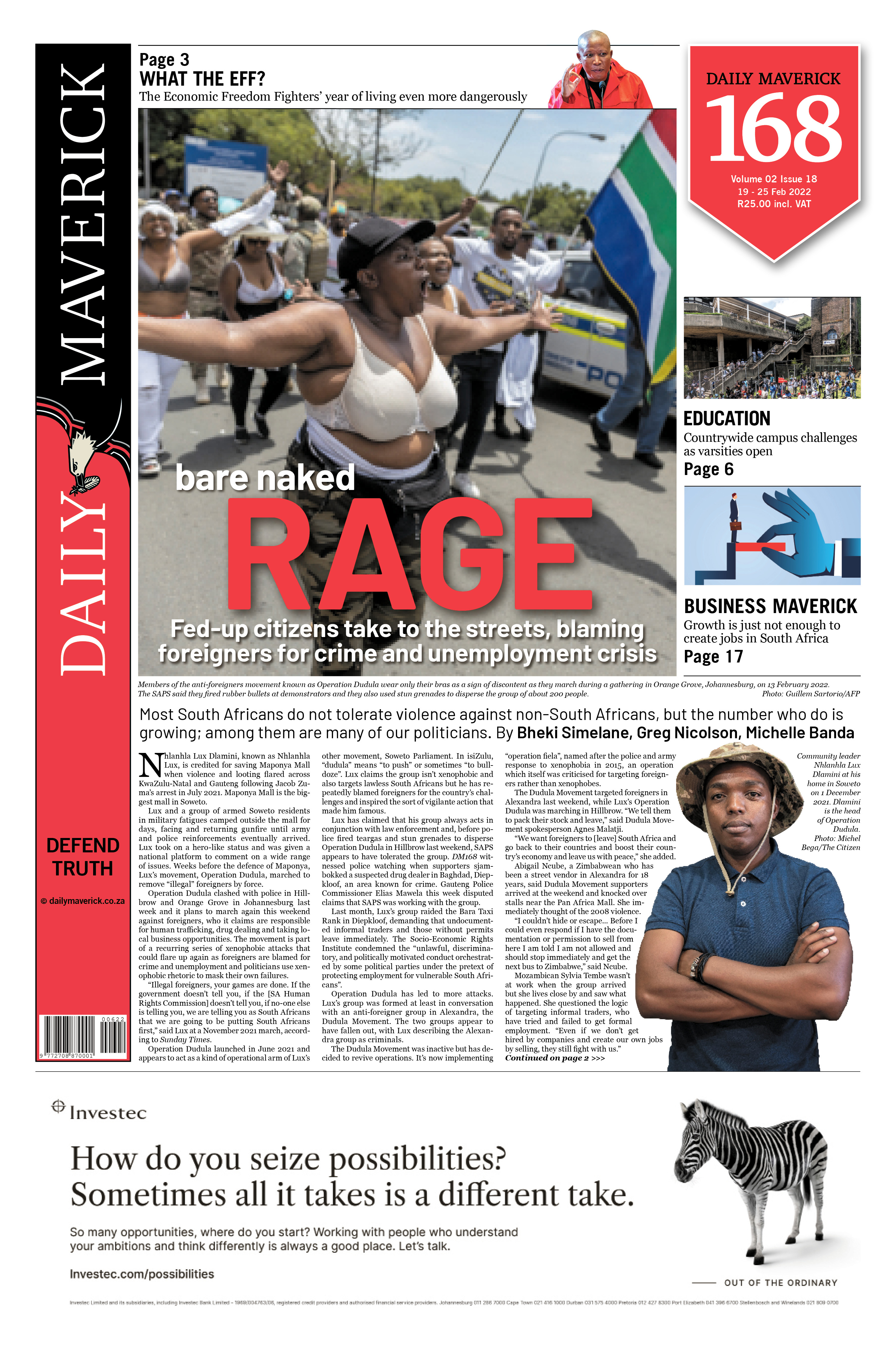Abalone poaching, increasingly controlled by gangs, is devastating Western Cape communities. There’s also a probable link between abalone and tik, the drug that’s ripping the heart out of Western Cape youth culture and fuelling high levels of crime and violence.
A report by the Global Initiative (GI) has suggested a controversial solution: stop arresting poachers and let abalone go locally extinct. This would create a spike in harvesting but ultimately kill the market and the social damage caused by it.
The report, by journalist Kimon de Greef and GI analyst Simone Haysom, maps this damage, which ranges from resource collapse to corruption, turf wars and the erosion of state institutions. Poaching has initiated gang murders, drownings, the rise of exploitative kingpins, corruption, drug abuse and the criminalisation of marginalised communities.
 Abalone confiscated West Coast. (Photo supplied by SAPS)
Abalone confiscated West Coast. (Photo supplied by SAPS)
There is evidence that abalone is traded for tik through “in-kind” payments between Asian criminal networks and South African ones, as well as more complex high-level financial transactions.
Hundreds of arrests of poachers, says the report, have failed to contain the criminal market. Abalone stocks are at a small fraction of their former abundance and the ecological consequences of this are practically irreversible, given the high levels of poaching. Under the circumstances, it says, the cost of preserving wild abalone stocks might be too high.
In essence, the argument is that the social fallout from abalone poaching is unacceptably high, and the environmental damage associated with it has already taken place.
“Harms linked to the trade have crossed vital ecological and institutional thresholds and law enforcement at source no longer serves a valuable purpose in containing its damage,” reads the report.
Despite decades of anti-poaching efforts, illegal harvesting is currently at its highest levels yet, with record prices for abalone and myriad groups competing for profits – from Cape gangsters to Somali smugglers. There are few realistic prospects for bringing the trade under control. Faced with these facts, it calls for a radical shift in the current state response.
Instead of treating abalone poaching as an environmental issue or as a law enforcement problem, the report argues that it must be treated as one in which various harms need to be balanced against each other.
“The best remaining option — while certainly controversial — is to abandon efforts to control illegal abalone harvesting, allowing the species to decline beyond levels that are viable for criminal enterprise.”
Poaching, says the report, is sustained by a lethal combination of demand emanating from Asia and vulnerabilities etched deeply into South African society: rampant poverty, the world’s highest levels of inequality and a government increasingly unable to confront the illicit economy.
 Abalone being shucked. (Photo: Shaun Swingler)
Abalone being shucked. (Photo: Shaun Swingler)
This has locked the country into a devastating feedback loop: the state response has enabled abalone poaching to flourish, which in turn undermines state institutions, leading to more poaching.
Over the past three decades, thousands of men from poor communities have been recruited as divers, boat drivers and other menial workers in the poaching industry. This has largely taken place in coastal villages where unemployment is high and poverty endemic, and a legacy of conflict with formal fisheries legislation has fuelled disaffection, suspicion and resentment towards the state, so that poaching is seen as the only alternative for fisher communities.
While abalone is farmed in many countries, poaching is fuelled by a preference in Asian markets for wild-caught abalone from South Africa. It generates huge amounts of income for smuggling syndicates, with 2020 value overtopping R1,000 a kilogram. It is traded in live, fresh, frozen, canned and dried form.
The illegal catch dwarfs all legal production and is estimated at more than 3,000 tonnes a year. From 2000 to 2016, the estimated value of South Africa’s illegal abalone catch was more than $890-million.
Most of the trade is channelled through Hong Kong, one of the world’s largest hubs for wildlife trafficking, moving enormous volumes of threatened species into Asia and around the world. About two-thirds of abalone passing through the port is thought to come from the black market.
In South Africa, the ground floor of the global poaching network is organised by Cape Town gangs who also control retail drug markets. Their links with Chinese criminal groups seeking abalone are thought to have begun with the import of methaqualone (to manufacture mandrax) and, later, methamphetamine, known locally as tik.
 Abalone fishing (Photo: Myron Yeung/flickr)
Abalone fishing (Photo: Myron Yeung/flickr)
This led to a destructive wave of drug abuse, first in Cape Town, then in many coastal areas as drug merchants affiliated with poaching networks established new bases for their operations.
Abalone poaching, says the report, offered a lucrative new revenue stream for buying drugs and weapons used to establish and hold operational territories and markets.
The existence of poor townships adjacent to abalone and lobster resources just offshore, linked with a government that seemed unable or even unwilling to address community problems, provided fertile conditions for smuggling to boom.
The report details the poaching “line” or conduit and the players at each level. At base are divers, lookouts, boat crews and carriers. These feed buyers who arrange storage and transport to dryers who create drying areas or cookhouses and organise security.
The processed product is then handed to exporters – including new Somalian and Congolese groups associated with the trade – for transport into neighbouring states where the export of abalone is not illegal, or to local Chinese who organise flights out of Africa to importers, mainly based in Hong Kong. Researchers were told by gang and poaching participants that they were paid directly in drugs for catches out the water.
The report found that many “China malls” catering to wholesalers paying cash are believed to double as illicit abalone hubs. It said no known criminal investigation had been able to establish how the money flowed between Hong Kong and South Africa.
There was evidence to suggest that every government agency tasked with combating abalone poaching had been compromised to some degree by corruption linked to the trade. The most pervasive was linked to the fisheries department and South African Police Service. South Africa’s high levels of poaching, says the report, would be impossible to sustain without this pervasive graft.
Instances of corruption range from bribes of low-level inspectors to serious allegations against senior officials. These payments enable divers to access, unopposed, protected waters and local middlemen to transport abalone safely. They also enable suspects to walk free when evidence goes missing.
Known drying facilities are not raided and bulk batches of confiscated abalone are steered, at discounted prices, to people with ties to poaching syndicates. Legal permits can be laundered to export poached abalone and cash encourages customs inspectors to look the other way at border inspections.
Although abalone poaching is claimed to be a priority for South Africa, it is not for neighbouring countries where it is easily laundered. This hamstrings South African law enforcement efforts.
In South Africa, the report concludes, the battle to save abalone from a population collapse has already been lost. While the bulk of the environmental damage from this trade – abalone’s population crash – has already occurred, the human harms are still ongoing and are getting worse. “The status quo – the suite of policing action aimed at arresting poachers and their immediate bosses and busting drying facilities, coupled with a dysfunctional system for awarding wild-harvest quotas to local communities, and virtually no action taken at any other point in the illegal flow – is fundamentally broken.”
Seen in that light, “the direct costs of enforcement, the opportunity costs, as well as indirect costs such as the criminalisation of low-level poachers and corruption pressure on state institutions become hard to defend”.
The report recommends three steps. The first is to reorient resources from policing at source to campaigning at destination. This could work, but would require uncertain political and social shifts in a country like China with no particular incentive to care about South African abalone.
The second would be to stop enforcing anti-poaching laws and focus on investigating trafficking networks. This would involve withdrawing anti-poaching operations for abalone, allowing the remaining abalone population to be harvested to the point where there’s so little left that the illegal market crashes.
 A policeman holding a bag of dried abalone, packed and ready for transport. (Photo supplied by SAPS)
A policeman holding a bag of dried abalone, packed and ready for transport. (Photo supplied by SAPS)
This might appear to be sanctioning the local destruction of species, but whatever we do, poaching is taking the situation to that point anyway. It would basically be a “race to the bottom”.
“In terms of human costs, the flow of bribe money to state officials would stop, as they would no longer need to be bribed to forestall prosecution. There would be no arrests of poachers and the cycle of criminalisation in coastal communities would be disrupted.”
The third action would be to repair social damage, support the legal economy and pay coastal communities a conservation dividend. To do this, it would be necessary to:
- Fix the Fisheries Department so reliable marine research can inform policy and permits can be issued effectively;
- Repair the investigative functions of law enforcement, so it can disrupt criminal syndicates and illicit trade routes when they form; and
- Create alternative economic opportunities for young men at risk of being recruited by poaching syndicates.
“Perhaps one of the biggest tragedies of South Africa’s decades-long abalone poaching crisis,” says the report, “is the missed opportunity it represents for sustainable local economic development in impoverished coastal communities.”
Abalone is commercially farmed, so it could be reintroduced at a later stage when control – and communities – are in better shape.
Handing abalone fishing to criminal networks, it says, means the potential value of this income has been lost owing to the illicit nature of the fishery. It’s time for a radical rethink. DM168
This story first appeared in our weekly Daily Maverick 168 newspaper which is available for R25 at Pick n Pay, Exclusive Books and airport bookstores. For your nearest stockist, please click here.

[hearken id="daily-maverick/9194"]
[hearken id="daily-maverick/9193"]




 A policeman holding a bag of dried abalone, packed and ready for transport. (Photo supplied by SAPS)
A policeman holding a bag of dried abalone, packed and ready for transport. (Photo supplied by SAPS) 